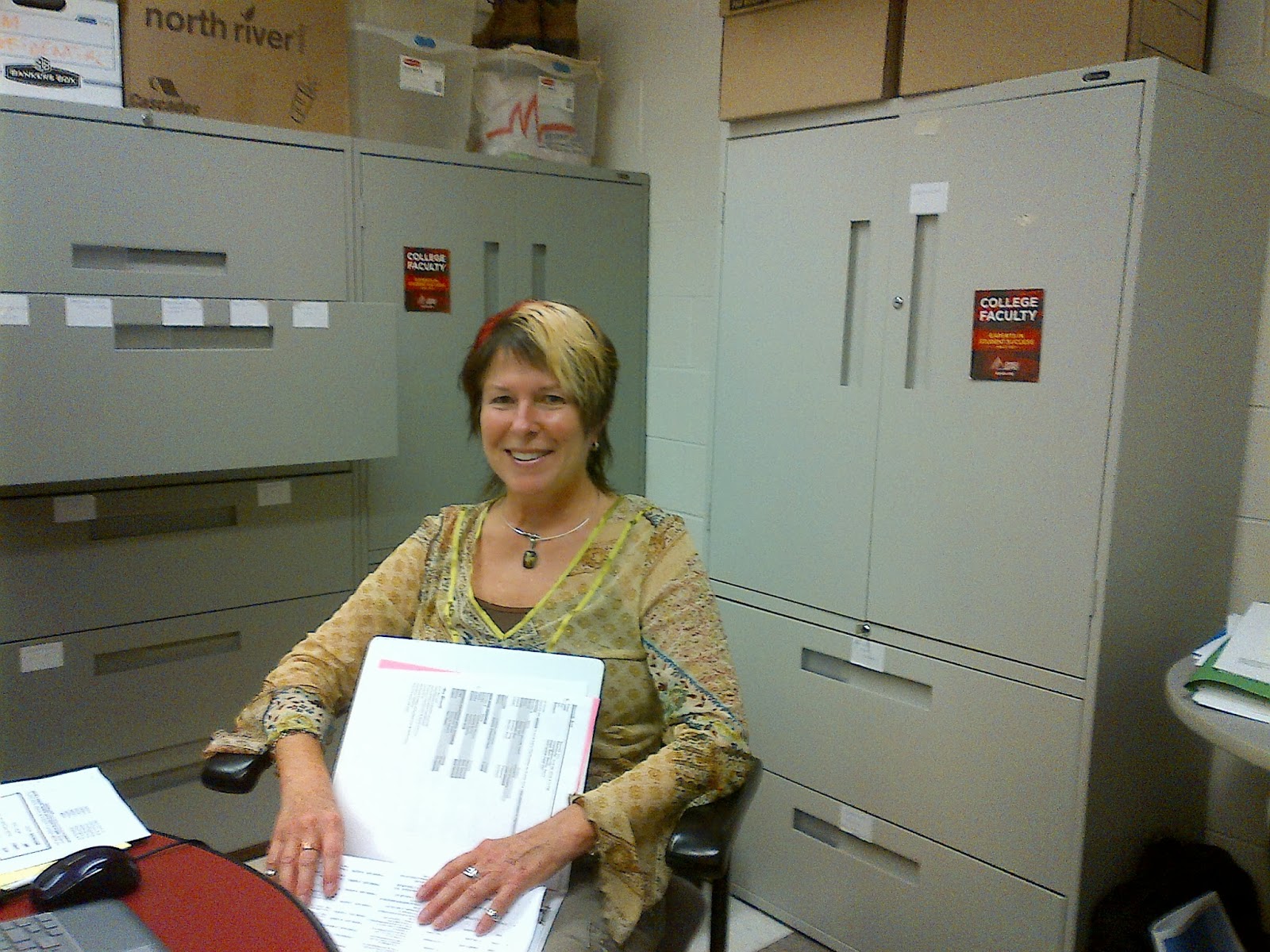 |
| President Baiba Butkus, left, and LEC members |
A change that has profoundly affected professors at Lambton is the College's new practice of splitting up the theoretical and practical instruction that has traditionally been done by a single professor. Management's goal is clearly cost-saving, as lab, studio, or other practical student contact is being given to lower-paid technicians. Professors are then relegated to teaching theory courses, and are no longer able to globally evaluate the performance of students.
The fissuring of theoretical and practical instruction strikes at the heart of what makes the community college system unique - an educational environment in which theory and application are closely integrated, and in which students are able to learn directly from experts in the field. Increasingly, professors are responsible for assigning student grades without ever observing them in practical situations. Given this, is it any wonder they're questioning how reliable the evaluations are?
 |
| Technology Professor Khaled Nigim |
In fact, management at Lambton has embraced a particularly tech-heavy vision of college education that they call "mobile learning". The idea is that students will regularly use mobile devices - phones and tablets - in all aspects of their education. To this end professors are being pressured to use i-pads, regardless of whether the technology is actually useful in a given class. Of course, along with the vision of "mobile learning" comes lucrative corporate deals for hardware, software, and e-textbooks.
Lambton College's vision for "mobile learning" speaks to the wider debate of how technology is used in education today. On one side of this debate is the undeniable power that technology has to enhance learning and productivity, and also the inescapable need to be technologically proficient in today's economy. On the other side of the debate are critical voices who argue that high-tech isn't always better, that mobile gadgets can be as distracting as they are helpful, and that corporate profit is driving the field more than sound pedagogy.
As I've said before in this blog, no professor I've spoken with is "anti-technology". Heck, even I typed this blog entry on my i-pad and took the pictures with my smart-phone. However, I also agree with professors concerned about an uncritical rush to bring every new technological trinket into the post-secondary learning environment. Student and faculty experiences are already revealing the limitations, as well as possible strengths, of learning technologies. For this reason it is critically important that professors be the ones to decide, based on research and experience, when and how technology is used.





